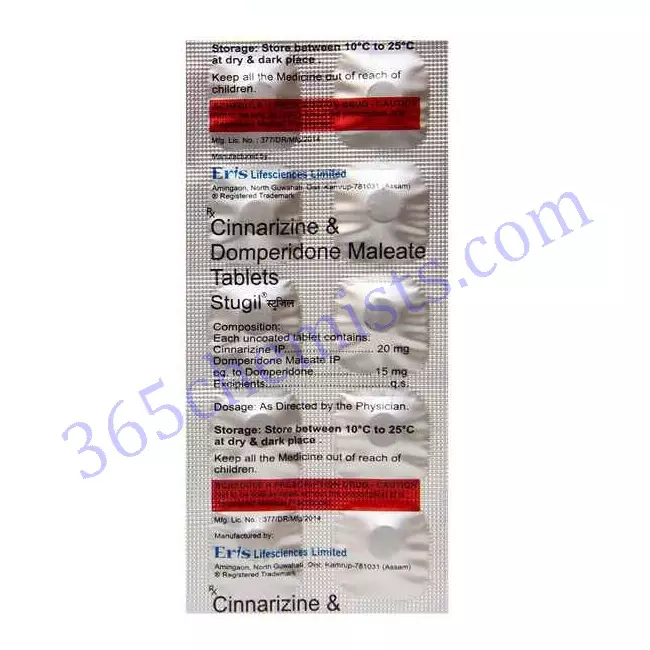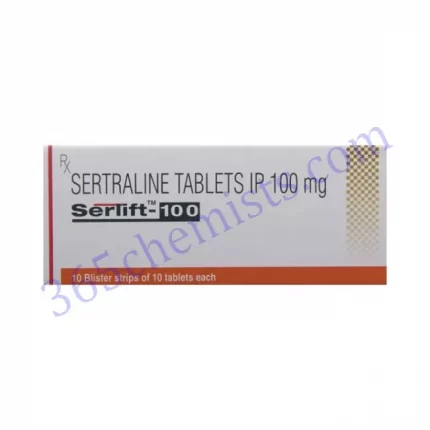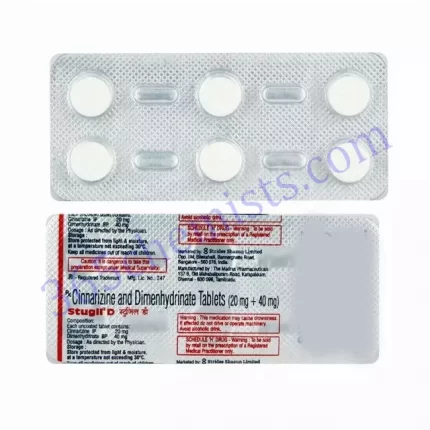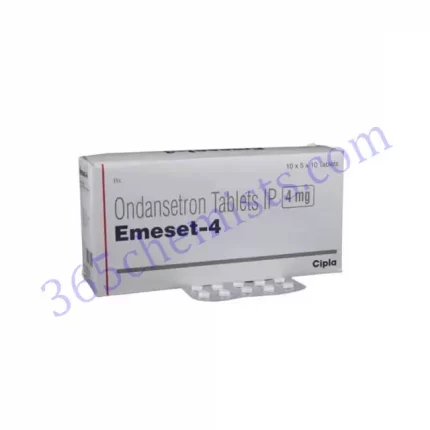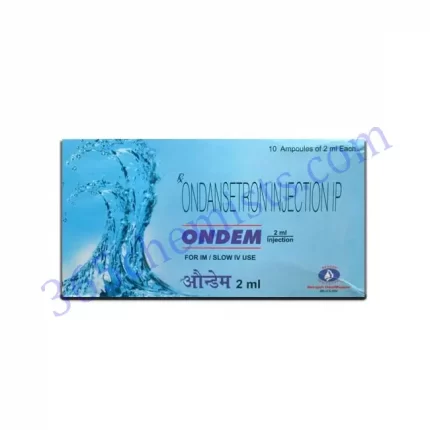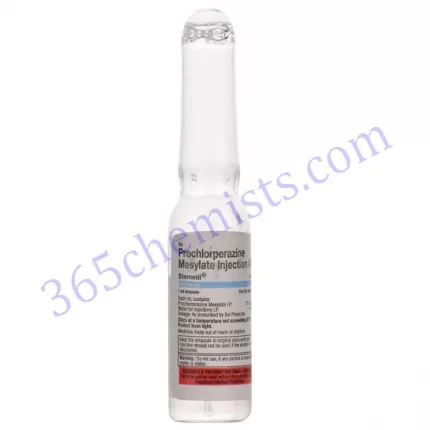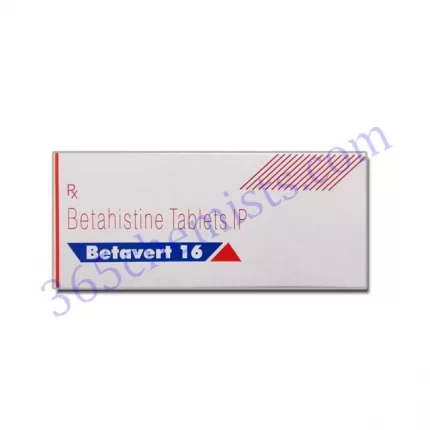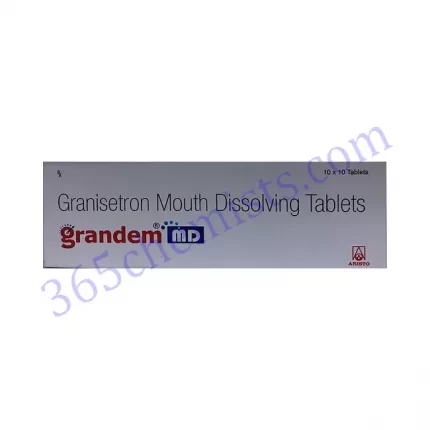Stugil Tablet
Stugil Tablet is indicated for treating the symptoms caused by vestibular disorders. It is also prescribed in vertigo/motion sickness, nausea, dizziness, headache, vomiting, the sensation of fullness, when there is a delay in gastric emptying.
Stugil Tablet is a combination of Domperidone and Cinnarizine. The active ingredients fall under the class of dopamine antagonist and anti-histamine, respectively. The medicine tightens the muscles near the entrance of the stomach and relaxes the ones present at the exit.
The action of this medication helps to speed up the passing of the food that you intake – from your stomach to your intestine, reducing the feeling of nausea and sickness, also preventing vomiting.
This medicine also works by blocking or reducing the stimulation in the ‘vomiting centre’ of your brain, which will eventually reduce the feeling of nausea and vomiting. The possible side effects of taking this medication can be nausea, dryness in mouth, indigestion, sleepiness or weight gain.
You are advised not to take Stugil Tablet if you have the following conditions:
An allergy to Stugil Tablet or any other ingredient of this medicine
Bleeding problems or blockage in your stomach or in the intestine
Tumour in the pituitary gland
Cardiac disease
Incorrect levels of magnesium, potassium or calcium in the blood
Severe/moderate liver impairment
Use
The primary use of Stugil Tablet is as follows:
Vertigo And Vestibular Disorders
Vertigo
Motion Sickness
Nausea
Dosage
Side Effects
Here are some of the possible side effects of Stugil Tablet:
Skin Rash
Weakness
Dry Mouth
Insomnia
Sweating
Unusual Tiredness And Weakness
Depressed Mood
Muscle Stiffness
Dosage
Are there any missed dose instructions?
Skip the missed dose and resume with the next scheduled dose at the right time. The dose should not get doubled in an attempt to make up for the missed dose.
Are there any overdose instructions?
Contact your doctor if an overdose is suspected. Symptoms of overdose may include drowsiness, agitation, and convulsions and may be more prevalent in infants and children. Immediate medical attention including gastric lavage may be required in severe cases.
Work
This medication attaches to the dopaminergic receptors without causing any release of the chemical dopamine. It, in turn, facilitates gastric emptying and decreases small bowel transit time. Also, it prevents the relay of repetitive messages from the nerves in the inner ear to the vomiting centre in the brain. Thus altogether alleviates the symptoms.

